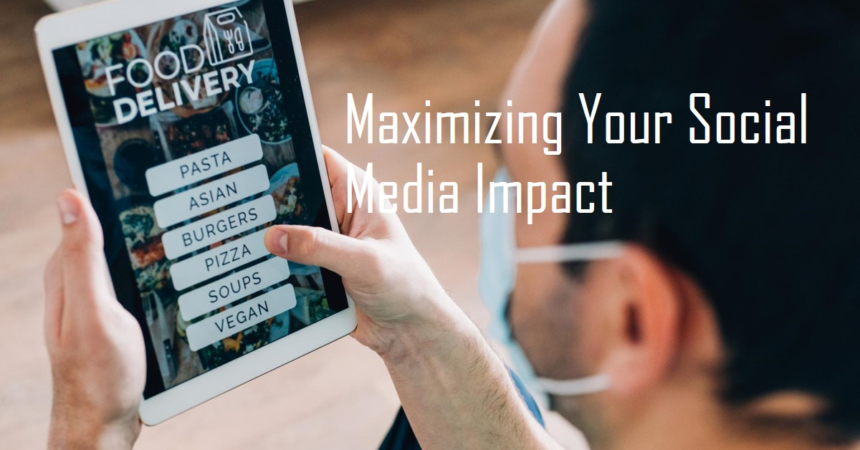Introduction
In today’s digital landscape, social media is more than just a platform for sharing personal updates; it has become a vital tool for businesses looking to connect with their audience, build brand loyalty, and drive sales. Social Media Campaign Management is the art and science of planning, executing, and analyzing campaigns across various social media platforms. With billions of active users worldwide, effective campaign management can significantly boost visibility, engagement, and conversions. In this article, we will explore key strategies for successful social media campaign management, supported by data and industry best practices.
The Importance of Social Media Campaign Management
According to Statista, as of 2023, there are approximately 4.9 billion social media users globally, a number that is expected to grow even further. This presents a massive opportunity for brands to engage with their target audience. Effective campaign management enables businesses to:
- Enhance Brand Awareness: Social media campaigns can reach a wide audience, increasing visibility and recognition for your brand.
- Engage Customers: Campaigns can facilitate two-way communication, allowing brands to engage directly with customers and build relationships.
- Drive Traffic and Conversions: Well-managed campaigns can lead to increased website traffic, ultimately resulting in higher sales and conversions.
Key Elements of Social Media Campaign Management
- Define Your Goals
Before launching a campaign, it’s essential to outline clear, measurable objectives. Common goals include:
- Increasing brand awareness
- Generating leads
- Boosting engagement (likes, shares, comments)
- Driving website traffic
- Increasing conversions and sales
According to a study by HubSpot, 64% of marketers prioritize brand awareness as their top goal for social media campaigns, followed closely by customer engagement at 57%.
- Know Your Audience
Understanding your target audience is crucial for effective campaign management. Utilize analytics tools and customer insights to identify demographics, interests, and behaviors. Tools such as Google Analytics, Facebook Insights, and Twitter Analytics can provide valuable data about your audience.
- Choose the Right Platforms
Different social media platforms cater to different demographics and types of content. For instance:
- Facebook: Ideal for building community and sharing various content types.
- Instagram: Perfect for visual storytelling and targeting younger audiences.
- LinkedIn: Best for B2B marketing and professional networking.
- Twitter: Effective for real-time updates and engaging in conversations.
Selecting the right platforms ensures that your content reaches the right audience.
- Develop Compelling Content
Content is at the heart of any social media campaign. Consider the following types of content:
- Visuals: Images, infographics, and videos tend to perform better in terms of engagement. According to research by BuzzSumo, posts with images receive 94% more views than those without.
- User-Generated Content: Encourage your audience to create and share content related to your brand. This not only boosts engagement but also builds community.
- Stories and Reels: Utilize platform-specific features like Instagram Stories and Reels for behind-the-scenes content, quick tips, and promotions.
- Create a Content Calendar
A well-structured content calendar can help streamline your campaign efforts. It allows you to plan and schedule posts in advance, ensuring a consistent posting schedule. According to CoSchedule, marketers who document their content strategy are 538% more likely to report success.
Implementing Your Campaign
- Launch Your Campaign
Once your content is ready, it’s time to launch your campaign. Ensure that all team members are aligned and understand their roles. Utilize paid promotions where necessary to enhance reach, especially on platforms like Facebook and Instagram, where organic reach has declined.
- Engage and Interact
Active engagement during your campaign is crucial. Respond to comments, messages, and mentions in a timely manner. According to Sprout Social, 40% of consumers expect a response within the first hour of reaching out.
- Monitor Performance
Utilize social media analytics tools to track key performance indicators (KPIs) such as:
- Engagement rates (likes, shares, comments)
- Click-through rates (CTR)
- Conversion rates
- Impressions and reach
Monitoring these metrics will provide insights into what’s working and what needs adjustment.
Analyzing and Adjusting Your Campaign
- Post-Campaign Analysis
After the campaign concludes, conduct a comprehensive analysis of its performance. What were the outcomes? Did you meet your objectives? Use this data to evaluate:
- Which content types performed best?
- Which platforms yielded the highest engagement?
- What lessons can be learned for future campaigns?
- Make Necessary Adjustments
Based on your analysis, make necessary adjustments to your strategy for future campaigns. Continuous improvement is key to successful social media campaign management.
Best Practices for Social Media Campaign Management
- Be Authentic: Authenticity fosters trust. Be genuine in your messaging and engage with your audience in a relatable manner.
- Stay Updated with Trends: Social media is ever-evolving. Stay informed about the latest trends and algorithms to keep your campaigns relevant.
- Utilize Paid Advertising: Consider using paid advertising to boost your campaigns, especially for important announcements or product launches.
- Experiment and Innovate: Don’t hesitate to try new formats and strategies. Social media is a creative space, and innovation can lead to higher engagement.
- Encourage Feedback: Ask for audience feedback on your campaigns. This not only enhances engagement but also provides valuable insights for improvement.
FAQs
- What is social media campaign management?
- Social media campaign management involves planning, executing, and analyzing marketing campaigns on various social media platforms to achieve specific business goals.
- Why is a content calendar important?
- A content calendar helps organize and schedule posts in advance, ensuring consistency and strategic planning for your campaigns.
- How can I measure the success of my social media campaign?
- You can measure success by analyzing key performance indicators (KPIs) such as engagement rates, click-through rates, and conversion rates.
- What types of content work best on social media?
- Visual content, user-generated content, and short-form videos typically perform well on social media.
- How often should I post on social media?
- Posting frequency can vary by platform. Generally, consistency is more important than volume. Aim for a regular posting schedule that keeps your audience engaged without overwhelming them.
Conclusion
Effective Social Media Campaign Management is essential for businesses seeking to thrive in the digital age. By defining clear goals, understanding your audience, developing compelling content, and continuously analyzing performance, you can create impactful campaigns that drive engagement and growth. Remember, the digital landscape is ever-changing, so staying adaptable and open to innovation is key to your success.
Are you ready to elevate your social media strategy and engage your audience like never before? Start planning your next campaign today!
Also know Creative Content Marketing Services for Business Growth







